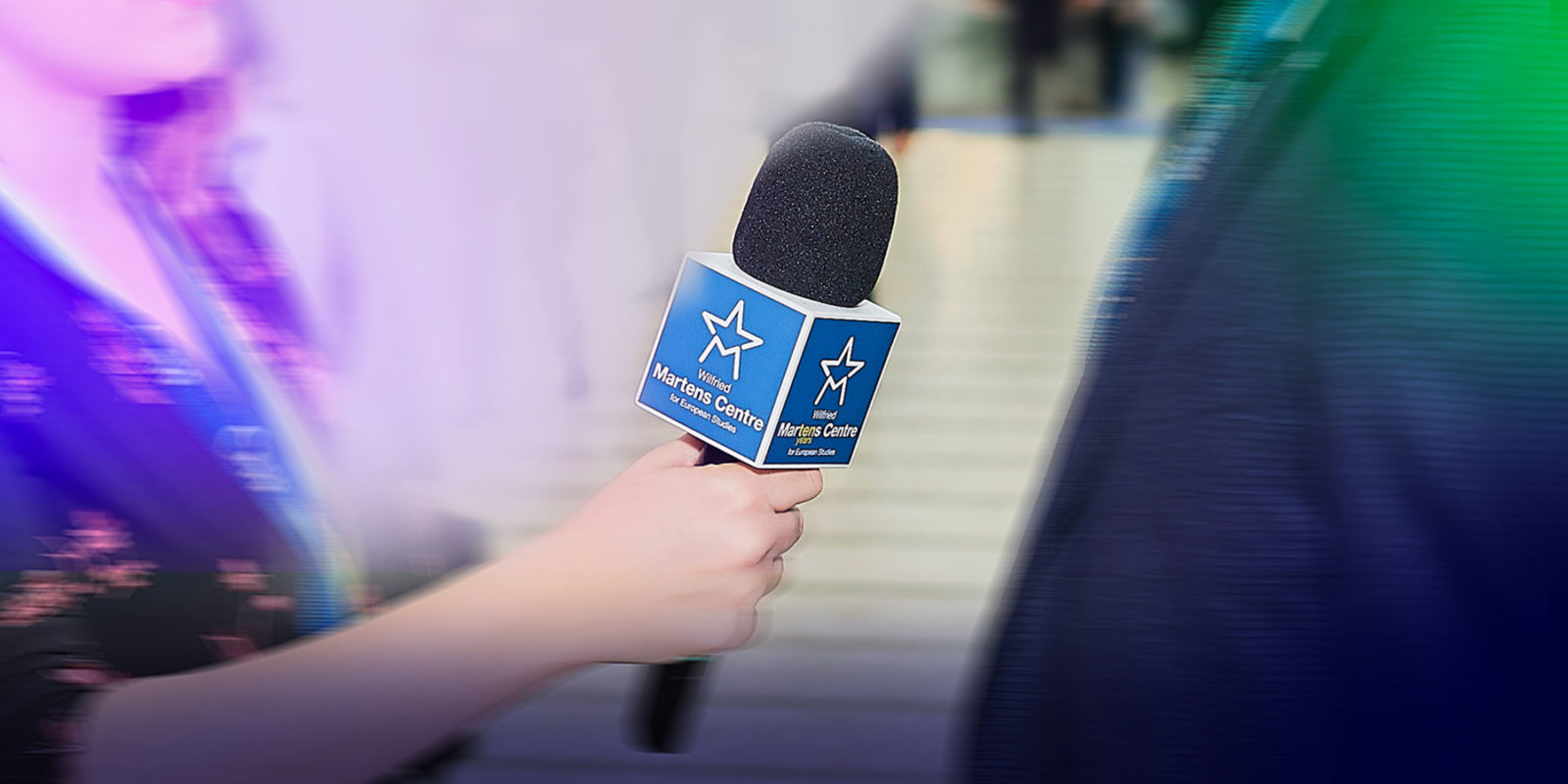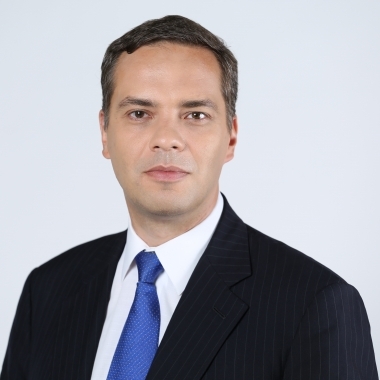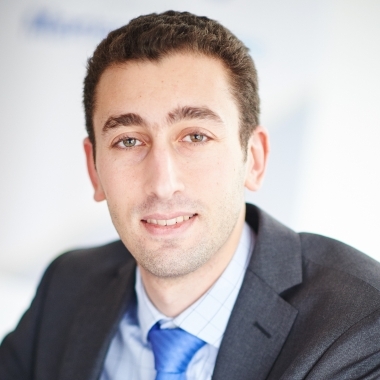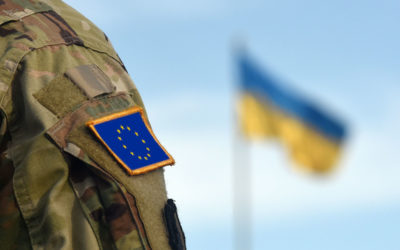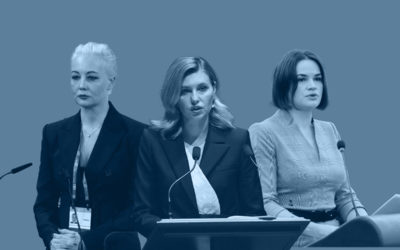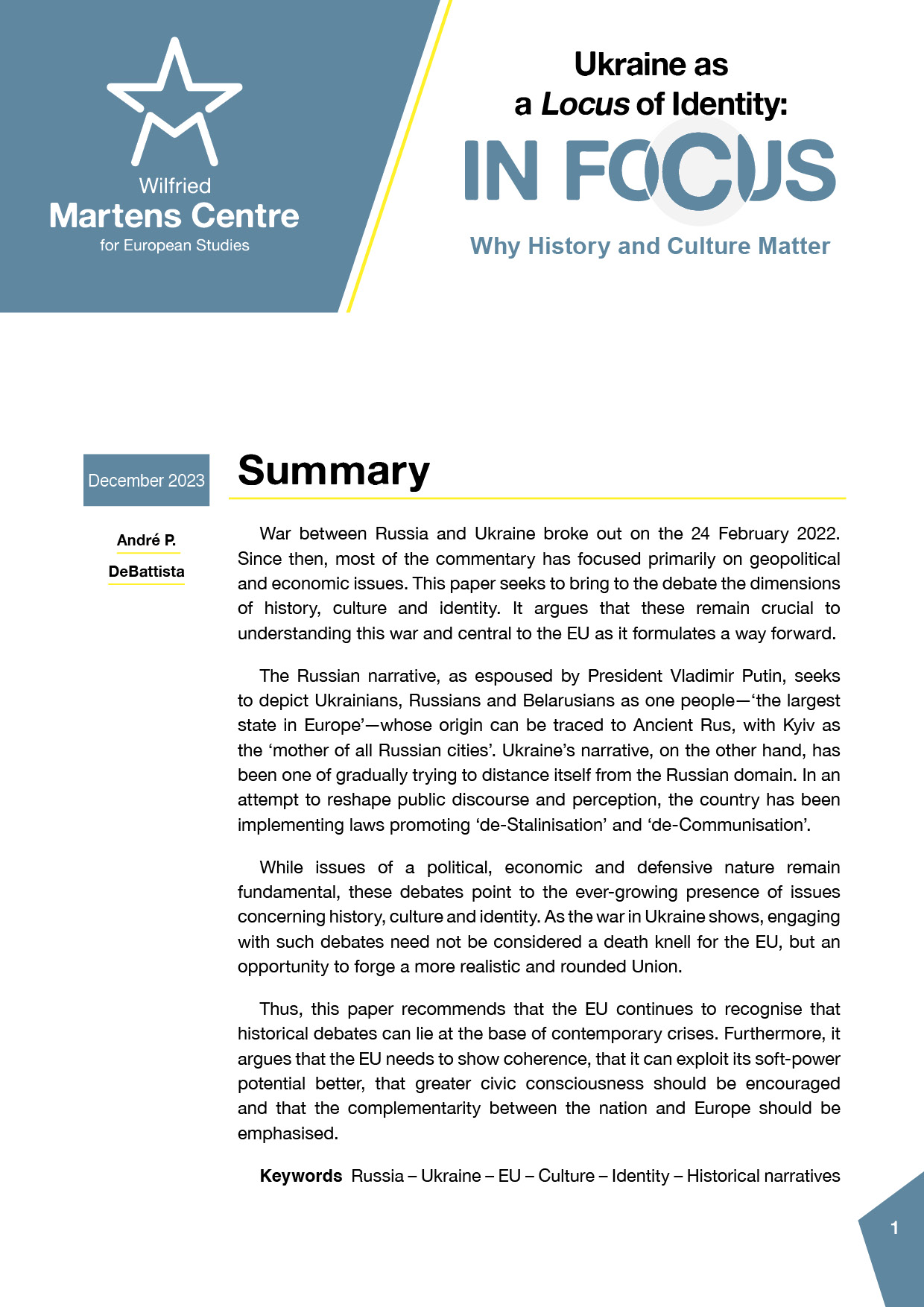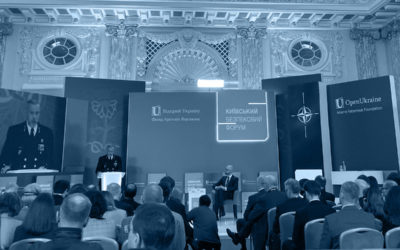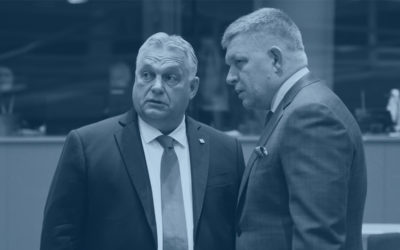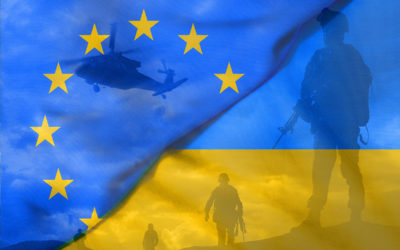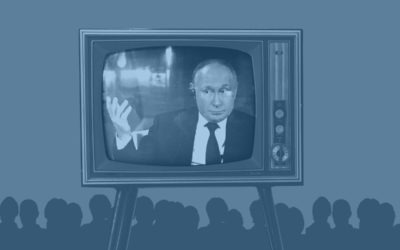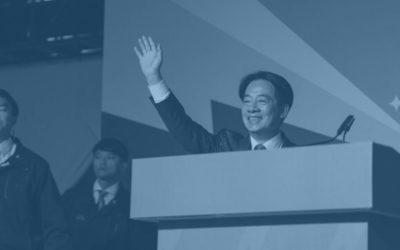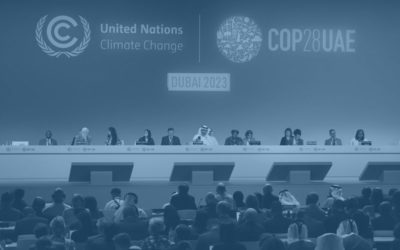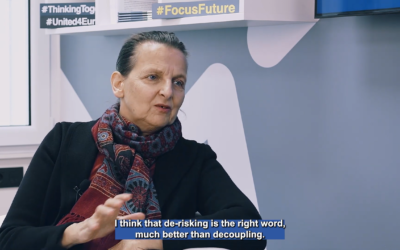Vital Questions on the Ukraine Crisis
23 February 2022
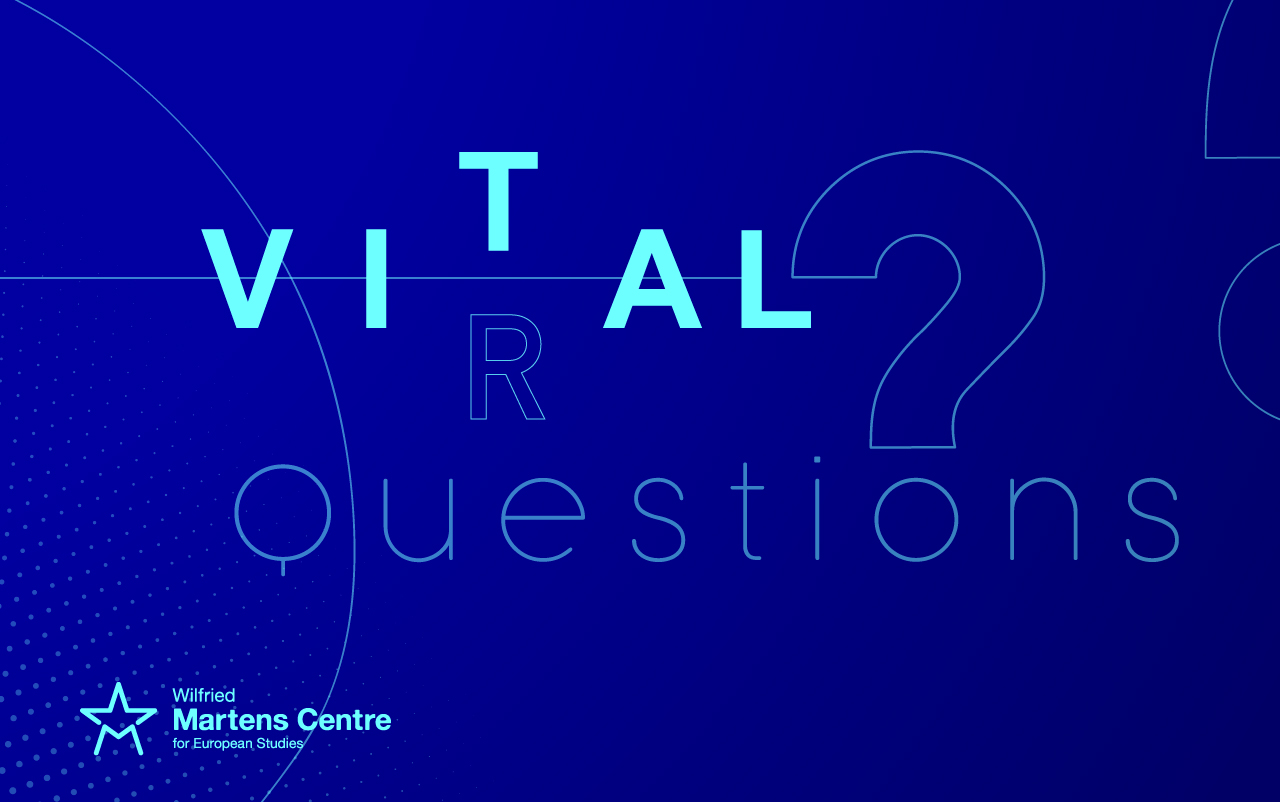
1. The Russian violation of Ukraine’s sovereignty has been described as a turning point in European history; war has returned to our continent. How do you view the long-term implications of Russia’s aggression?
Vladimir Milov, Russian Opposition Leader and Martens Centre Research Associate: Much depends on further developments of the situation – will Putin stop at the current line of conflict or further the military invasion of Ukraine, and how the West will react. However, one thing is clear and very concerning: Putin has developed an appetite for permanent destabilisation and the escalation of tensions – which is not only limited to Ukraine – and his regime, in its present shape, remains a fundamental threat to European and global security. Putin’s recent speeches and historic rants, and Monday’s broadcast of the meeting of Sovbez (the National Security Council, the highest authority which currently de facto rules Russia), demonstrate that the entire Russian leadership is not inclined to adhere to the international rules-based order, and is ready and willing to act in a disruptive manner, not just with regard to Ukraine. In order to contain Putin’s permanent destabilisation policy, a strong deterrence strategy is required.
Michael Benhamou, Martens Centre Research Associate: Russian troops entering Eastern Ukraine marks the return of a high-intensity military scenario not witnessed since Saddam Hussein’s invasion of Kuwait in 1990. Sadly for us Europeans, there are two important differences: [1] the United States will not come to the rescue this time, with President Biden having confirmed the power shift to Asia launched by Presidents Obama and Trump.
[2] European Armies cannot cope with such a conventional war scenario on their own continent (i.e. infantry vs infantry). This is firstly due to military budgets, especially in Central and Northern Europe, having decreased considerably over the past decades; secondly because post-9/11 wars have driven our soldiers towards urban combat and counter-terrorism – a long shot from classic warfare.
To put it differently, polls show the citizens of Sweden and Germany to be most opposed to Russia’s behaviour (ECFR); but they also vote for politicians who, for the most part, disdain the purpose of the military. This contradiction is being exploited right now.
2. As a follow-up, do you think this situation fundamentally imperils the liberal international order (also taking into the positions of countries such as China and Turkey)?
Milov: Of course, Putin’s moves show deep disregard to the international rules-based order, and disrespect even to his own commitments – he recently praised the Minsk agreements as “the only possible solution” to the Donbas conflict, only to throw them into the dustbin just a few days later. Putin is a dangerous player with total disregard for international rules and Russia’s international commitments, as his record over the years and the very recent development prove.
Benhamou: On that topic, the entourage of Vladimir Putin has indeed developed a sophisticated anti-liberal critique since the end of the 1990s. A few years ago, I remember reading about Putin’s top adviser Alexandre Dugin’s interpretation of German jurist Carl Schmitt for instance. Schmitt was a former Nazi party member who famously wrote in The Concept of the Political (1932) that “a nation who does have the force or the will to engage in wars does not mean the end of the political order; it simply means the end of a weak nation.”
This Russian mindset is underpinned by the rise of conflict in Europe’s periphery and beyond. And yes it is opposed to the victorious post-World War II model – that of America’s open markets competition and of the sense that cooperation is more beneficial than systemic mistrust – with the European Union being the best example of this choice. Putin wants to take us back to inter-state zero-sum games that are easier to play (for them), unreasonably passionate, but also more unpredictable.
To face this challenge, citizens of democracies need to get rid of their apathy. French philosopher Tocqueville wrote beautifully about the egoism of property-obsessed democrats in times of peace, followed by their awakening and cohesion when the threat approaches. Will his prediction prove to be right again?
3. Putin’s televised address on Monday evening was a rambling attempt to negate Ukraine’s right to exist and justify Russian aggression. Has Putin recently become disconnected from certain geopolitical realities, or has this always been the case and is only now more apparent?
Milov: Putin is not disconnected from reality, he deliberately tries to wittingly construct a parallel propaganda reality to justify his actions, and he doesn’t care about the truth and facts. I’m sure he’s aware that his interpretation of history has little basis in reality – for instance, he says that “Khrushchev had for some reasons taken Crimea from Russia and handed it to Ukraine”, but he must be fully aware that things have in a totally different manner and it was not Khrushchev, there are plenty of official Soviet documents actually explaining the long discussion about the need to transfer Crimea to the Ukrainian SSR for objective reasons. Putin cannot not know that – but he’s obviously lying to the public, consciously and deliberately, following the Goebbels playbook step-by-step.
Benhamou: Yes, as February 2022 ends, there seems to be a lack of logic in Russia’s short-term goals: annexing Ukrainian provinces that it already de facto controls – provinces with limited strategic value – and all these theatrics at the cost of renewed sanctions, economic difficulties, increased support for NATO amongst Ukrainians…
But we don’t have the whole game plan. And Moscow has some serious cards in their hands too: time, geography, overwhelming force, gas, increased wheat production enabled by climate change. Yet all these cards would be pointless if China ends up swallowing the whole. In business terms, we’d say that Russia’s alliance with Europe would bear more “complementary advantages” than going East – with each side possessing skills the other does not.
4. Western sanctions are on the way, Germany has just announced the cancellation of the Nord Stream 2 pipeline, and Russian stocks and the ruble have already crumbled. Will economic pressure be the undoing of Russia’s military endeavour?
Milov: Yes, the Russian economy will suffer greatly from another round of Putin’s aggressive foreign policies. Russia is still heavily dependent on consumer imports, and the depreciation of the ruble further hits the consumer purchasing power of ordinary Russians (which had reduced by about 10-15% since the beginning of the aggression against Ukraine in 2014). Even the import substitution efforts backfire, as they only lead to the monopolisation of industries and price growth, further reducing Russians’ real incomes, as proved by the experience of import substitution in food and agricultural sectors since 2014. Russia’s large corporations and its banks, the lifeblood of Putin’s economic system, will be further disconnected from the global markets and the financial system, pushing Russia from a globally-oriented player towards an Iranian-style semi-autarky. Public opinion polling for Putin is already not so bright, because Russians are tired of economic woes caused by his geopolitical adventures, and of living in a ‘besieged fortress’ mode. New economic sanctions caused by the occupation of Donbas mean serious costs for Putin – in case Western sanctions will be serious enough to meet expectations.
Benhamou: I am not a Russia expert, and I have never been to Russia myself. But the resilience of Russia’s population is multi-secular, as is their acceptance of authority. As for Nord Stream 2, it is not a cancellation but a suspension as far as I understand. The infrastructure in the Baltics will not be destroyed and can be reactivated at any time!
Political winds only need to blow a little for that to happen – just look at rising oil prices, rising electricity prices impacting all families, America’s rapid exit, potential wars in the Middle East that Europeans will not be able to handle on their own… “Patience”, Putin will tell his audience. Patience.
We owe it to the Ukrainians to tell them the truth: they are alone right now. No Europeans will die for them. And we need to rethink the balance between our liberal values and the return of violence in order to be ready for that next time.

